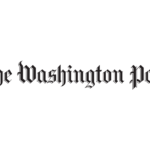The legalities of a nuclear shutdown
By Alexander Rossnagel, Anja Hentschel | November 1, 2012
In July 2002, Germany amended its Atomic Energy Act so no new nuclear power plants could be built and existing power plants would continue running only for a limited time. In 2009, however, a coalition led by Chancellor Angela Merkel took control of the German government and reversed the country’s nuclear phase-out policy, extending nuclear plant operating lives and announcing that risks associated with nuclear energy were insignificant. Three months later, just days after the nuclear disaster at the Fukushima Daiichi Nuclear Power Station in Japan, the German government abruptly reversed course again, closing eight older nuclear power plants and eventually ordering the nine remaining plants to cease operations by 2022, at the latest. Three out of the four operators of German nuclear power plants have since taken legal action, seeking compensation for profits supposedly lost as a result of the nuclear policy change. But due to a number of factors—including the German constitution, which places a duty on the government to protect citizens, and the nuclear operators’ participation in the original 2002 agreement to phase out nuclear power—most legal observers believe these legal challenges to Germany’s nuclear exit are destined to fail. The German nuclear exit includes financial compromises that allow nuclear operators to recoup investments in their nuclear power plants, and the legal protection these compromises provide to the government may be the part of the German initiative that is of most interest to other countries considering nuclear exits.
Together, we make the world safer.
The Bulletin elevates expert voices above the noise. But as an independent nonprofit organization, our operations depend on the support of readers like you. Help us continue to deliver quality journalism that holds leaders accountable. Your support of our work at any level is important. In return, we promise our coverage will be understandable, influential, vigilant, solution-oriented, and fair-minded. Together we can make a difference.















